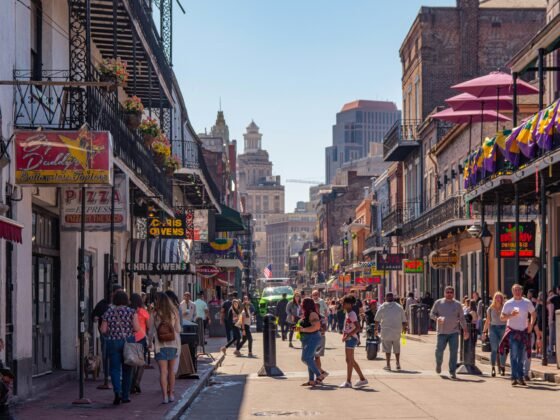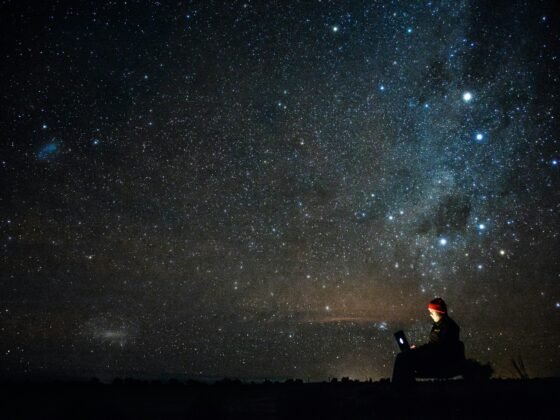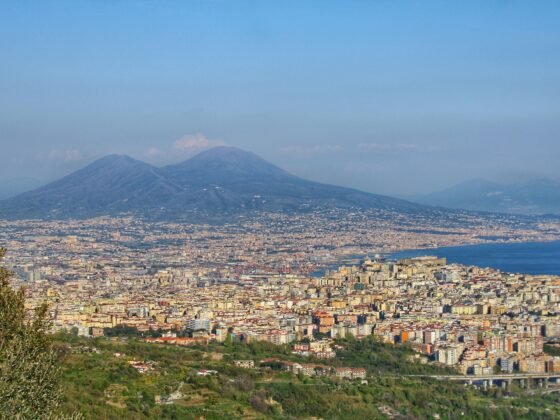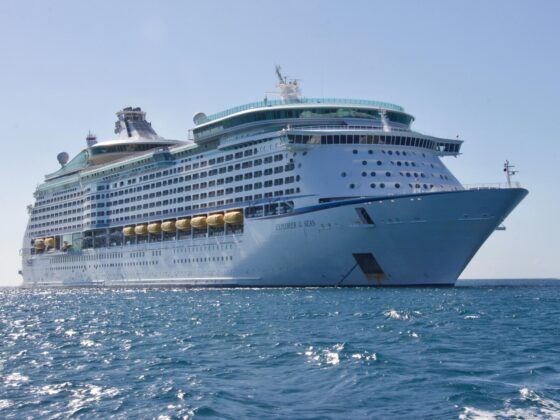Did you know that each year since 1996 a different city has hosted the prestigious UNESCO Arab Capital of Culture? Designed to both celebrate and promote Arab culture internationally, the honour is similar to that of the European Capital of Culture.
1996 – Cairo, Egypt – The very first city to host the Arab Capital of Culture in 1996 was Cairo, the capital of Egypt. With the 4000 year old Pyramids of Giza, the stunning Mohamed Ali Mosque which was built in 1824 and the Egyptian Antiquities Museum which has some 120,000 artefacts on display, it’s easy to see why Cairo was chosen.
1997 – Tunis, Tunisia – The capital city of Tunisia is a hive of activity day and night with a bustling medina which sights, sounds and smells hit you the second you arrive. Cultural highlights of Tunis include the impressive Roman site of Dougga, the towering Mosque Sidi Youssef and the beautiful and imposing Cathedral of St. Vincent de Paul.
1998 – Sharjah – UAE – The third largest Emirate is the antithesis to Dubai; Sharjah is much more low key. Cultural delights abound with plenty of museums, galleries and leisure facilities. Learn about the local heritage at the Museum of Islamic Civilization, explore the imposing Al-Hisn Fort and see the rare Arabian leopard at the Sharjah Desert Park and Zoo.
1999 – Beirut, Lebanon – Vibrant downtown Beirut is home to many mosques and colonial relics, yet many areas show signs of the dark past. There are plenty of rich highlights in the city that hosted the Arab Capital of culture in 1999, such as the ancient ruins at the Temples of Baalbek, the family-friendly promenade and beach at the Corniche and the interesting National Museum of Beirut.
2000 – Riyadh, Saudi Arabia – Riyadh is ultra-modern with gleaming skyscrapers set against the desert backdrop. The city itself is rather conservative with excellent world-class facilities. Don’t miss the fascinating 10 galleries within the National Museum, admire the modern skyscrapers from up on high at the Kingdom Centre Tower and wander the ancient fort of the Masmak Citadel.
2001 – Kuwait City, Kuwait – Modern and sophisticated Kuwait City has much to offer shopaholics with an abundance of high-end malls and traditional souqs as well as history enthusiasts with an interesting heritage. Must-see sights include the stark Grand Mosque, the decorative Kuwait Towers and the interesting Scientific Center.
2002 – Amman, Jordan – As one of the oldest inhabited cities in the world, Amman was an easy choice to host the Arab Capital of Culture. Pockets of rich heritage do remain, although much of Amman is now modern and westernized. Explore the architectural remains at the Citadel, wander the 2000 year old Roman Amphitheatre and learn a little at the National Archaeological Museum.
2003 – Rabat, Morocco – The capital city of Morocco was chosen to host the prestigious cultural honour in 2003. With its laidback atmosphere and clean streets it’s more European in feel. That said, there is plenty to see and do in Rabat, such as visit the austere Mausoleum of Mohammad V, haggle til you drop at the Medina of Rabat and cool off at the quaint Andalucian Gardens.
2004 – Sana’a, Yemen – Sana’s is hailed as the oldest city in the world and the ancient patchwork of colours, smells and sounds are truly beguiling. Soak up the ancient heritage in the Old Walled City of Sanaa, shop for spices, textiles and knick-knacks at the Souq al-Milh and check out the intriguing pre and Islamic artefacts on display at the National Museum.
2005 – Khartoum, Sudan – Khartoum is a modern African city built at the site where the two Niles meet. Its laidback and low-key but the rich history and architecture make up for this. The Sudan National Museum is a good starting point to learn about Sudan’s history, take a safari in the Dinder National Park and explore the Sudanese Pyramids of Meroe, Gebel Barkal and the Great Enclosure.
2006 – Muscat, Oman – The capital city of Oman is low-key and free of high rise buildings, thanks to a strict building policy. The result is traditional architecture coupled with a forward-thinking outlook. To mark the 2006 Arab Capital of Culture honour, Muscat opened the Bait al-Baranda museum. Other highlights include the divine Royal Opera House, the carefully preserved Jabrin Fort and the impressive Mazara Dam.
2007 – Algiers, Algeria – Set against the Mediterranean Sea, Algiers is a sprawling whitewashed and prosperous city. Cultural highlights include the interesting Memorial du Martyr, the handsome Notre Dame d’Afrique and the curious Cathedrale du Sacre Coeur.
2008 – Damascus, Syria – The City of Jasmine, aka Damascus, fulfils the romantic ideals of the Orient, with a maze of side-streets, ancient bazaars, traditional coffee shops, soaring minarets and lavish mosques. Don’t miss the rich heritage of the Old City, gawp at the luxurious Umayyad Mosque and learn a little at the National Museum of Damascus.
2009 – Jerusalem – One of the oldest cities in the world is nestled between the Mediterranean Sea and the Dead Sea. Jerusalem was established 3000 years ago within a walled city and is dedicated to spiritualism. Thriving bazaars, mazes of alleys and unique architecture await. Visit the final path of Jesus, along the Via Dolorosa, explore the most symbolic monument of Jerusalem; the Dome of the Rock and don’t miss the Western Wall.
2010 – Doha, Qatar – In 2010, the capital city of Qatar state hosted the Arab Capital of Culture. Doha shot to fame after hosting the Asian Games of 2006 and is a city of contrasts where ancient souqs stand alongside modern malls. Explore the unique hoard at the Sheikh Faisal Bin Qassim Al Thani Museum, visit the Grand Mosque and take a sunset or sunrise walk along the city’s Corniche.
2011 – Sirte, Libya – The small town of Sirte is now more famous as the birthplace and site of Muammar Gaddafi’s death. It was chosen to host the Arab Capital of Culture in 2011 although today the city is largely left in ruins.
2012 – Manama, Bahrain – The small city of Manama is located on the Persian Gulf and is the capital of Bahrain. As you’d expect, the city is lively with near 24/7 shopping and dining facilities. To get a head start on the crowds (and heat) start sightseeing early. Catch the superb Bahrain National Museum, admire the architecturally magnificent Al-Fatih Mosque (Great Mosque) and haggle your heart out at the Bab el-Bahrain Souk.
2013 – Baghdad, Iraq – This year Baghdad has been chosen to host the Arab Capital of Culture 2013. Despite years of conflict and travel warnings in place, Iraq has a rich wealth of history that is waiting to be explored when the situation improves. Cultural highlights include Babylon, the Iraq Museum and Ur of the Chaldees.
Note that some of these destinations have experienced, and continue to experience unrest and as such travel may not be recommended currently. Always check the latest situation prior to travel.











